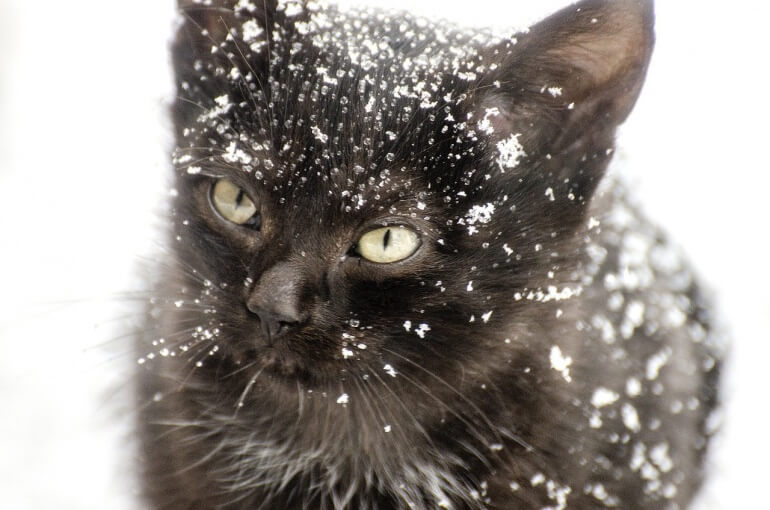Keep Animals Safe During Cold Winter Weather
When temperatures drop, we all need to take steps to make sure we stay safe, warm and dry – and animals are no exception. Cats, dogs, rabbits and other animals may have their own fur coats, but they can still suffer from frostbite, exposure or dehydration when water sources freeze.

Don’t leave your animal companions out in the cold – follow these simple steps to keep them cosy this winter:
- Keep animals inside, particularly puppies, kittens, elderly animals, rabbits, guinea pigs, small dogs and dogs with short hair, including pointers, beagles, pit bulls, Rottweilers and Dobermans. Short-haired animals will also benefit from a warm sweater or coat on walks.
- If left outside, rabbits, guinea pigs and other animals must be protected from drafts and damp conditions. Hutches should be raised off the ground and covered with a waterproof tarp at night and when it rains. Provide an enclosed sleeping box lined with straw or other nesting materials. Bedding should be changed weekly, and water should be changed twice daily. Wrap water bottles in towels or other insulating material to prevent them from freezing. But even better, keep your animal companions safe and sound indoors.
- Don’t allow your cat or dog to roam freely outdoors. During winter, cats sometimes climb under the hoods of cars to be near warm engines and are badly injured or killed when the car is started. (To help prevent this, bang loudly on the hood of your car before starting the engine.) Dogs may run out onto frozen ponds and fall through the ice. Animals can also become disoriented when there is snow or ice on the ground. More animals are lost during the winter than during any other season.
- Wipe off your dogs’ or cats’ legs, feet and stomachs after they come in from the snow. Salt and other chemicals can make your animals sick if they ingest them while cleaning themselves.
- Be careful with antifreeze. Many brands have a sweet taste which can be tempting to animals, but drinking it will likely kill them. Make sure you store your antifreeze in a secure place out of reach of animals and children – better still, choose a brand that includes a bittering agent.
- Increase animals’ food rations in cold weather.When it’s cold outside, animals burn more calories to keep warm.
- Keep an eye out for strays. Take unidentified animals indoors until you can find their guardians or get them to an animal shelter. If strays are skittish or otherwise unapproachable, provide them with food and water and call your local animal shelter for assistance in trapping them and getting them indoors. If you encounter an animal in urgent need of help, call the RSPCA, SSPCA, USPCA or ISPCA.
- Provide a source of water for wildlife, who may have a difficult time finding drinking water during winter months. Break the ice on the surface at least twice a day.
- Leave out seeds or nuts for birds.

